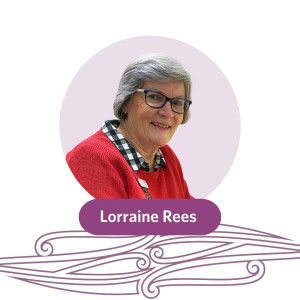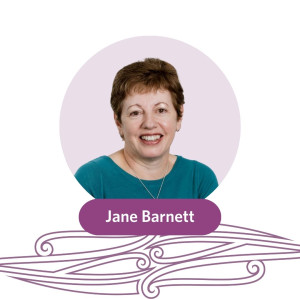Interview with infection prevention specialists
 As part of International Infection Prevention Week 16–22 October 2022, Health Quality & Safety Commission infection prevention and control (IPC) specialist, Dr Ruth Barratt, talked to established IPC specialists Lorraine Rees, nurse manager infection prevention and control at Te Whatu Ora – Health New Zealand Te Pae Hauora o Ruahine o Tararua Midcentral, and Jane Barnett, national infection prevention and control programme lead at Southern Cross Healthcare.
As part of International Infection Prevention Week 16–22 October 2022, Health Quality & Safety Commission infection prevention and control (IPC) specialist, Dr Ruth Barratt, talked to established IPC specialists Lorraine Rees, nurse manager infection prevention and control at Te Whatu Ora – Health New Zealand Te Pae Hauora o Ruahine o Tararua Midcentral, and Jane Barnett, national infection prevention and control programme lead at Southern Cross Healthcare.
What advice or words of encouragement do you have for new IPC practitioners?
Lorraine
Be prepared to learn every day from your successes and failures. Seek and share knowledge and embrace opportunities that come your way.
Having these attributes helps: great communication skills, a desire to be a champion yet collaborative, and the ability to celebrate your wins. As well, the ability to think strategically and operate locally, and to roll your sleeves up to do the mahi, to

solve complex problems which have previously been out of scope.
Jane
Leadership is at the heart of what we do. You’ll enjoy this speciality if you’re pragmatic, persuasive and able to take others with you. We’re not appointed to ‘police’ practice, but to change behaviour through role modelling and education.
Also, not being part of an IPC team can be lonely, so seek support from a wider network and find a buddy to mentor and support you.
Build positive relationships; others will be much more likely to take your advice and direction during an outbreak of infection.
What does the future hold for IPC practitioners in New Zealand?
Lorraine
My vision for IPC nurses is that we are recognised by the Nursing Council as a nursing specialty, not an ‘other’.
COVID has given IPC a very public profile over the last two and a half years, and our specialty needs to capitalise on this.
With Te Whatu Ora’s support, resources need to be accessible across the motu so we can deliver locally to maintain high standards of care. This may include significantly improved IT systems, collaborative multi-disciplinary teams, and being on the top table’s ‘invite’ list.
Jane
Nationally we need to think big: we lack a multi-disciplinary association to fully represent those who work in the speciality. Internationally, organisations represent specialists in a variety of medical specialties, and we should aim for this.
Succession planning is important. I’m keen to provide secondment opportunities at national and hospital levels, across Southern Cross Healthcare.
We need to formalise education and training provided to IPC specialists via a progression framework, such as the credentialing offered by the Australasian College of Infection Prevention and Control. Ultimately, we need to do the same across public and private sectors in New Zealand to give IPC specialists a recognised path to successful practice.
Now is the time to refocus on antimicrobial stewardship, and what that looks like in our organisations. Nationally, we need to look at more standardised and integrated electronic systems to help manage this and other audit activities.
Learn more about international infection prevention week here.
